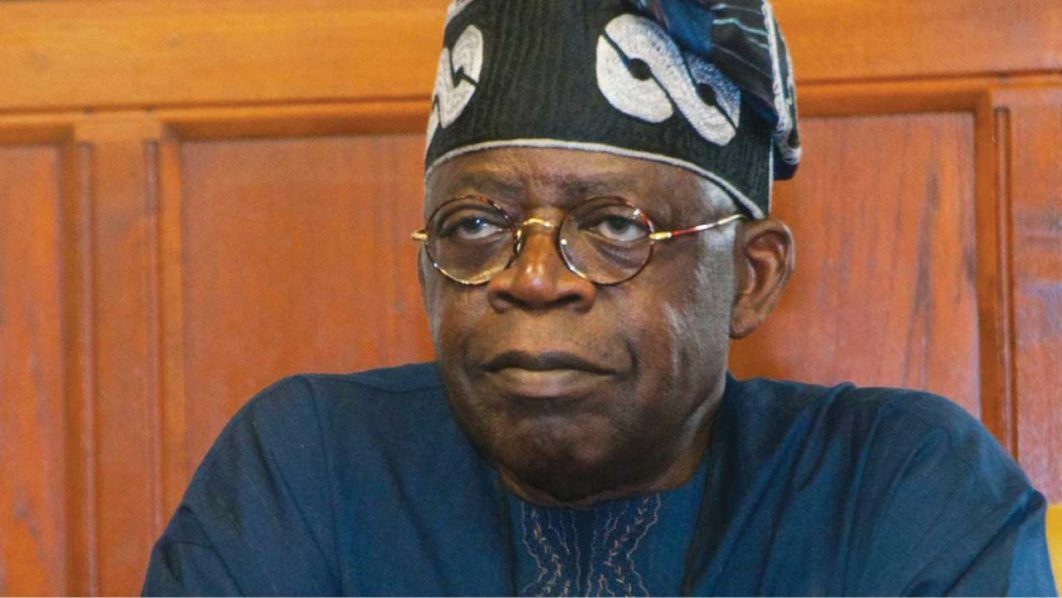...To get all news updates, Join our WhatsApp Group (Click Here)
Also Join our WhatsApp Channel (Click Here)
BY SHAKA MOMODU
Despite my well-considered warning to Bola Ahmed Tinubu in my factual treatise on him sometime last year, and how his clinching the presidency would be bad for Nigeria, he has proceeded to formally declare his interest in the 2023 presidential election. It appears this mercantile politician whose character portrait is corrosive to democracy and who elevates self-interest over and above national interest will be taking no prisoners in the pursuit of his “lifelong ambition.” However, I am ready to shout it from the rooftops again and again, that his character attributes will engender a conflict of interest like never before if he is given keys to the presidency.
I had suspended my series of articles criticising his ambition in the hope that wise counsel would prevail and the man would cease to disturb our peace. But apparently, the demos of his stranglehold on Lagos thus far are not about to let us live in peace. Like the famed Oliver Twist, he wants more. He is trying to extend his empire conquest and seize our national vault.
Unarguably the greatest beneficiary of our democracy since 1999, Tinubu with an awful past and present, continues to test our patience. But he should know that even a small mouse has anger. In the land of my fathers, it does not require many words to speak the truth. So, I am resuming my series of articles against his ambition as part of my contribution to stop another affliction from plaguing this land – which if allowed to succeed, may mark the final demise of any form of societal values.
We will face an existential threat if we fail to act now to preserve whatever little is left of our values. The current calamity in the land was brought upon us by Tinubu and his unrighteous coalition. Look at what they have turned our fatherland into. A vast ocean of poverty and killing field of blood-thirsty terrorist gunmen slaughtering at will, unchallenged by security forces.
If for nothing else, the mere fact that Tinubu is the architect of this leprous administration, should deny him support from any sane Nigerian. But as I have often acknowledged, Nigerians are incredibly smart people, with a history of foolish choices. So I cannot take it for granted that we have learnt any lessons from our current travails. Just take a moment to think of all those who have been killed, kidnapped, raped, etc., since the All Progressives Congress (APC) came to power. Doesn’t that mean anything to these people who are campaigning for another affliction? Does the state of our country today mean anything to those campaigning for Tinubu?
Despite the overwhelming evidence of how bad things have become in our country under the APC, Tinubu and his coalition of the unrighteous continue to say in our faces that things are better than they met them. And anyone who genuinely believes things are actually better than they were seven years ago, must be crazy.
His presidential ambition, if allowed to succeed, will mark the audacious repudiation of the mores and morals that have shaped and kept societies whole for generations. Can Nigeria really afford that at this critical time in our history when one more wrong move will finally land us deep inside the abyss? His success will not only mean one of the strongest repudiations of ancient wisdom and those mores passed down from generation to generation, its social implications will be sweepingly dire, consequential in all ramifications, and above all, will amount to a resounding validation of all the social vices that this man is known for.
From his date of birth to his educational qualifications, career, business dealings, his mercantile politics and even his name, everything smacks of the more you look, the less you see – underscoring a lifetime of crime. A man who constantly changes his name without valid reasons must surely have something to hide. His time in office as governor of Lagos birthed one of the most audacious corruption schemes in this country’s history. I am talking of a then sitting governor awarding a sole tax revenue-collection contract to his own company, Alpha Beta, with 10 percent from a certain threshold going to him. Which governor has done that since 1999? So, at the minimum, Tinubu rakes in billions of naira monthly. As Lagos’ revenue grows, so does his bank balance. I don’t know where in the world this is allowed except in Nigeria.
Yet, those who should be outraged by such brazen corruption and abuse of public office are the ones celebrating him as the grandfather of modern Lagos. Mention Diezani Alison Madueke, the former minister of petroleum resources, they immediately don on the moral hat and you see the outrage in their expressions. A clear double standard from those who just moments ago defended Tinubu’s daily raiding of the Lagos vault. To them Diezani is a thief, but Tinubu is a saint who laid the foundations of modern Lagos and who we must remain eternally grateful to.
How does one explain that? Remind them of his corruption and abuse of office, their answer is usually feeble and goes like this: “He raised the revenue of Lagos and has empowered many people.” “You will not find his name anywhere in Alpha Beta or any other company he is said to be associated with.” These are the answers you get from people who should run into the streets in protest.
Even more annoying is their justification for supporting his presidential ambition. “Oh, he knows how to assemble competent team.” Is Tinubu the only one who can assemble competent team? Did former President Olusegun Obasanjo not assemble a competent team in 1999 and 2003? Did Goodluck Jonathan not assemble a competent team in 2011? Those who push this particular line of argument need to do better. In any case, of what use is a team that cannot look the boss in the eyes and say no, when he is about to do something patently wrong? What did the team do for Lagos? The current vice president, Professor Yemi Osinbajo was the Attorney General and Commissioner for Justice when Tinubu appointed his company the sole revenue-collecting company on behalf of Lagos State for a sizeable percentage. What did he do about the Alpha Beta deal? I would like to know his advice to his boss at the time on this particular issue and why he did not resign then in the face of such clear abuse of office and corruption. Yet, Osinbajo is generally seen as competent and one of the shining stars of the Tinubu era.
If Tinubu was so gifted at spotting talents and assembling competent people as we have been made to believe, what happened with Buhari? This superhero went to sleep? The man his supporters worshiped like a god failed spectacularly. It was he and others who cobbled that coalition together and they did assure Nigerians that Buhari was the best man for the job.
His so-called ability to put competent team together is a farce taken too far. I am rather persuaded by the view that Tinubu knows how to assemble a team of competent men and women and then turn them into subservient zombies and willing accomplices in the advancement of a lifetime of nefarious schemes. They aid and abet him. This is the sort of team he knows how to assemble and it is no-brainer as to why that is the case.
We may only get to know the full extent of Tinubu’s crimes when another party gets the keys to Alausa and starts unearthing all the dirt covered up since 1999. I can bet my last kobo, the earth will quake violently under our feet. I pray it happens someday.
Despite his daily raiding of Lagos and the full extent of what we don’t yet know, people continue to spew utter hogwash about his imaginary governance skills and mythical mastery of political strategy. That is what you get even from hitherto discerning minds and people you had previously ascribed some modicum of intellectual sophistication to. Educated people, professors, reasoning like zombies? Look, they don’t deny outright that he owns the company, but only say that Tinubu’s name is not in the company’s register. The fact that his name is not directly there doesn’t mean he is not the owner. All his associates are there as proxies for him. He hires and fires senior officials of those companies as he deems fit. Okay, ask them if Diezani’s name is in most of the bank accounts and assets that have been linked to her and you get radio silence. It is baffling how moronic some people can be, think, or have become.
But what can one really say when professors rig elections for thugs and known looters for crumbs in this country and judges are at the beck and call of politicians? In the good old days (oh, I miss those days) when men of character straddled the landscape, you could tell what they stood for. A character like Tinubu would think twice before aspiring to the most important office in the land – the embodiment of the physical, spiritual and moral authority of the entire country. The office that carries with it, all the latent and salient attributes that define, inspire and project character and content both internally and externally – attributes that shape our hopes and allay our fears. An office that projects the sum total of who we are, the symbolism of our union and the arc of our covenant. How can Tinubu with all his failings become the custodian of such a valued treasure? How can?
His crimes cannot be said to reflect the transient immaturity of youth. Instead, they reflect the permanent incorrigibility of a lifetime of gaming the system.
I watched with concern and profound disdain the man who wants to be president of Nigeria in his declarative press conference. He rambled and rumbled about his experience and capacity to turn things around. Hearing him and his supporters speak about Lagos, you would think the city-state is a Dubai on the lagoon. Yet, despite the best efforts of his successors to fix the broken and derelict infrastructure Tinubu left behind, when peer-reviewed by international bodies, Lagos consistently comes first from the rear as the dirtiest city in the world and one of the worst places to inhabit on earth. Traffic gridlocks remain a challenge. Many schools are without roofs, windows and chairs. World-class healthcare is non-existent. Ambulance services are epileptic. Basic infrastructure is broken. So is this the Lagos model people talk about?
It is to his eternal shame that there is no pipe-borne water anywhere in Tinubu’s Lagos. What is this nonsense talk about the Lagos model? Ease of doing business is a mirage as businesses are hit regularly with a multiplicity of taxes by the state. The investment climate is hostile. It takes forever to get a land title with all sorts of charges in tow. I therefore know not the basis for his hubris and persistent claim of his Lagos model working wonders. I should rather say, his model has limited the growth and development of this mega city. His ideas are as old and confusing as his age. Yet he insists, they must be followed to the letter. His shadow looms large over the affairs of the state and he controls everything, including who becomes the governor.
Without a shadow of a doubt, I know there are many unscrupulous, useful idiots who have no issues putting their intellect and writing skills at the service of ravenous politicians. In the name of tribe and religion, they rally support for this cadre of hacks, cranks and grifters lionized as heroes of our democracy, people that have amassed so much wealth and perfected the art of stealing from the state in broad daylight while claiming to be working for the people. For ethnic and whatever subsidiary motivations, they use their knowledge and writing skills to embellish falsehoods to advance the ambitions of these perfidious characters and fraudsters. Frankly, these writers, journalists, academics, etc., constitute a bigger danger to this country than even the politicians they try to deodorise. In their endeavour to return the favour done to them, they forget that journalists are street cleaners with pen.
Oh Bourdilion! That centre of iniquity and vice, what have you done to men that they can’t think and reason like men anymore?
In the run-up to the 2015 presidential election that brought Buhari to power, this same cadre of writers helped to promote the Buhari mystic, rewrote his history in such elegant terms that you would think the man was without blemish. They downplayed all the flaws and danger signs that cropped up everywhere on the road that they lured the people to take. Nothing else mattered. We heard of the “transfiguration of General Buhari”, “a born-again phenomenon” and “Buhari building the Nigeria of our dreams”. It is noteworthy that all the authors of those effusive praises have since abandoned the president with their tails between their legs.
However, it is not so much about the past but about the present because the angels of beautiful prose and letters are at it again. Now, it’s Tinubu For President they are selling to the people. I was scandalised when I watched the video of Tinubu telling a group of women supporters to go and register because their permanent voters’ cards (PVCs) had expired. Now, how can a man credited with a near-legendary status of political sagacity not know that the PVCs issued by the Independent National Electoral Commission (INEC) don’t expire? If they do expire, why are they called “permanent” in the first place? The campaign is yet to start and we are already seeing another “Osibande” moment.
Or in his usual way, is he already casting aspersions on the integrity of the voting system so that when he is defeated he can hold on to straws to dispute the result? That was not the first of such gaffes. Sometime last year, Tinubu called on the government to recruit 50 million youths into the police force to help fight insecurity in a country with a population of 200 million people. The figure was so improbable and unrealistic that he had to correct himself via a press statement days after.
For those who still won’t see things as they are, Tinubu’s gaffes are not just gaffes. They are due to old age and a diminishing mental faculty. The job of being president is rigorous, physically, mentally and even psychologically. The present occupant of the office is even complaining that age has taken a toll on his ability to deliver and you want him to be succeeded by another who is at the very least his age-mate? Even when you see Tinubu already manifesting some of the president’s weaknesses? For those who want to follow Tinubu, they can follow him.
However, there is a clear opportunity to stave off the forbidding outcomes of a Tinubu presidency and create a more viable future, free from the toxic politics of moneybags, bullion vans, treasury looters and a tyrannical hold on power. That opportunity is now and we must reject him convincingly. The future must not be defined by him!
You can get every of our news as soon as they drop on WhatsApp ...To get all news updates, Join our WhatsApp Group (Click Here)
Also Join our WhatsApp Channel (Click Here)

















